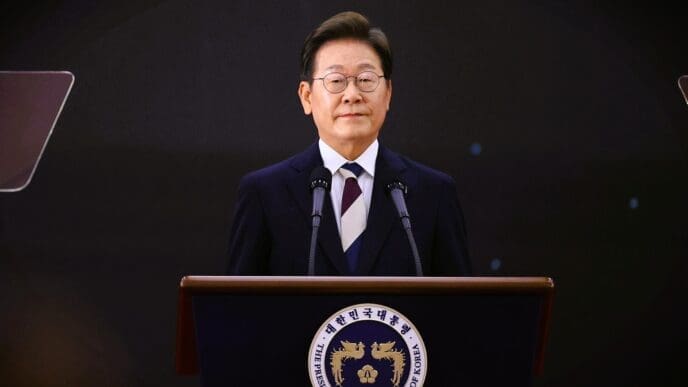The ongoing global trade tensions have seen U.S. President Donald Trump enact measures perceived as particularly unfavorable to Canada, according to British Columbia Premier David Eby. He expressed concern over Trump’s recent decision to issue a temporary pause on international tariffs for most countries, while maintaining the existing tariffs on Canadian products, notably in the softwood and automotive sectors.
In response, British Columbia’s government has instructed its Crown corporations, ministries, and health authorities to reconsider their reliance on American goods. The directive encourages these entities to cancel U.S. contracts where feasible, reduce involvement in American industry associations, and limit non-essential travel to the United States. Instead, there is a push to substitute Canadian products and services, provided they are available at competitive prices.
President Trump has temporarily eased the stringent tariffs for other nations but continued to enforce a 10 percent universal tariff and 25 percent duties on steel, aluminum, and automobile imports from Canada. This decision has prompted a strong reaction from Canadian leaders, including Ontario Premier Doug Ford, who expressed his dismay at Canada’s exclusion from the tariff pause, emphasizing the need for stability and market certainty.
The timing of these trade tensions coincides with Canada’s federal election campaign, which Eby describes as an added source of instability. He noted that Prime Minister Mark Carney is taking steps to mitigate the impact of U.S. tariffs using existing programs, but stressed the need for a proactive government in Parliament to support affected industries effectively.
Eby underscored the importance of redirecting revenue from tariffs imposed on U.S. goods back to Canadian workers and businesses facing the adverse effects of the American tariffs. Additionally, he highlighted the necessity of forging alliances with countries that share democratic values, human rights commitments, and a commitment to environmental protection and free trade.
The Bottom Line
The recent developments in the U.S.-Canada trade relationship highlight the precarious position of Canadian industries heavily reliant on U.S. trade. The ongoing tariffs and lack of relief could potentially increase costs for Canadian businesses, affecting product pricing and availability for consumers. Moreover, industries such as softwood lumber and automotive manufacturing may face increased pressure, potentially impacting employment and economic stability in regions dependent on these sectors.
From a governmental perspective, the emphasis on exploring alternative trade partnerships and reducing dependence on U.S. goods could lead to long-term changes in trade policies and industry strategies. For consumers, these changes may translate into shifts in product sourcing, pricing, and even availability of certain goods and services, as the country adapts to a new trade environment. The situation underscores the importance of strategic international alliances and the need for resilience in the face of ongoing global trade uncertainties.













